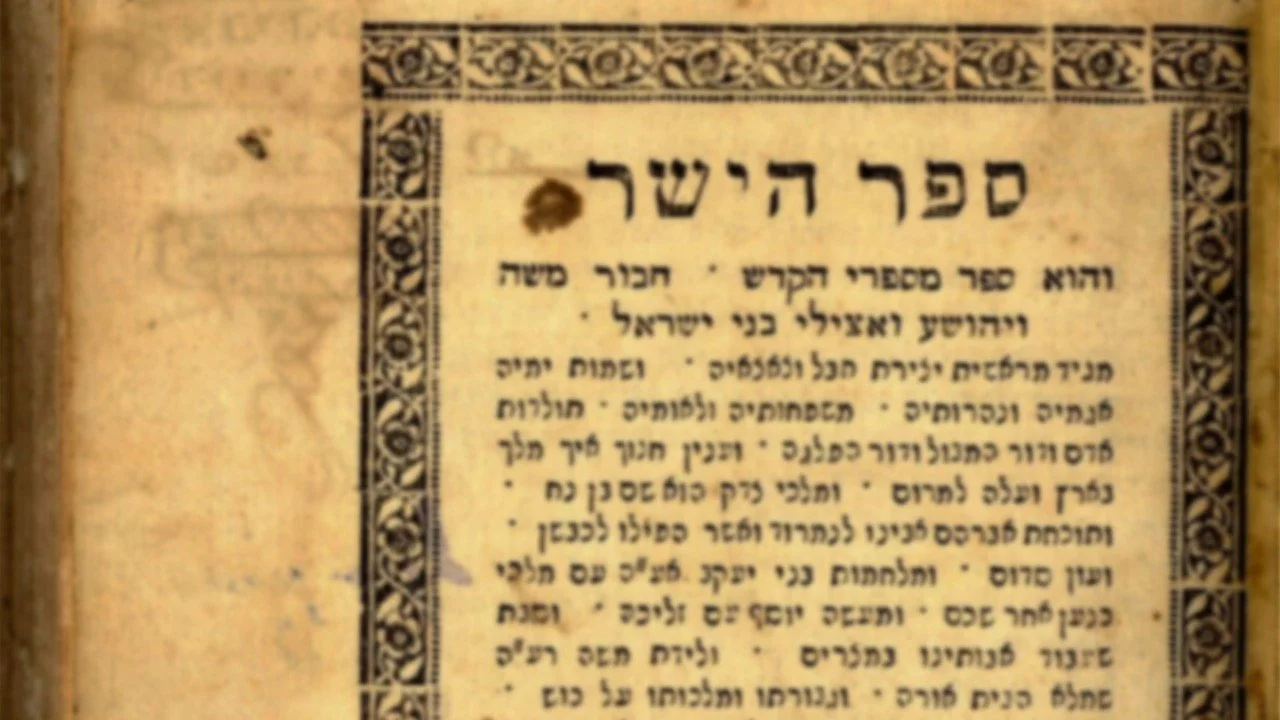Author: David Wilber
The Epistle to the Hebrews offers biblical evidence that the Holy Spirit is both fully divine and a distinct person. Within the epistle, the author identifies the Spirit as “eternal,” presents the Spirit as speaking God’s words as recorded in Old Testament quotations, and yet also distinguishes the Spirit as a separate agent from the Father and the Son. This article examines several references to the Spirit in Hebrews and shows how the author’s depiction is consistent with the Trinitarian understanding of the Holy Spirit as fully God and personally distinct from both the Father and the Son.
Introduction
The Epistle to the Hebrews provides a firm biblical foundation for Trinitarian claims regarding Christ’s eternal and divine nature. For instance, the first chapter of Hebrews declares that Christ is the divine Son, the agent of creation, the sustainer of the universe, worthy of the worship that belongs only to God, and explicitly identifies the Son as both “God” and “Lord” (YHWH).[1] However, while the epistle indeed provides many rich insights into christology, its contributions to pneumatology are often overlooked.[2] The author of Hebrews mentions the Spirit only seven times (Heb. 2:4; 3:7; 6:4; 9:8, 14; 10:15, 29),[3] which may seem negligible given the epistle’s prominent focus on the Son.[4] Some scholars have even argued that Hebrews offers no meaningful insight into the Spirit’s nature or role at all.[5] For instance, H. B. Swete tersely remarks, “in Hebrews there is no theology of the spirit.”[6]
Recent scholarship, however, is challenging that sentiment. As Patrick Gray and Amy Peeler write, “in recent years several scholars have argued that Hebrews has more to say about the Holy Spirit than has previously been recognized.”[7] Some of these scholars have contended that the epistle’s teaching on the Spirit “helps to propel later Christian thinkers along a trinitarian path”[8] and is “certainly congruent with a ‘trinitarian’ approach to the Spirit”[9] and that “the God who speaks in Hebrews is a God identified as three distinct speakers: Father, Son, and Spirit.”[10]
In line with this recent scholarship, I will examine several references to the Spirit in Hebrews, highlighting how the author describes the Spirit as “eternal,” presents the Spirit as speaking God’s words in Old Testament quotations, and distinguishes the Spirit as a separate agent from both the Father and the Son. This study will demonstrate that the portrayal of the Spirit in the Epistle to the Hebrews is consistent with the Trinitarian understanding of the Holy Spirit as fully God and personally distinct from both the Father and the Son.
The Deity of the Spirit
The author of Hebrews attributes to the Spirit qualities that belong uniquely to God. For instance, in Hebrews 9:14, he[11] states that Christ offered himself as an unblemished sacrifice through the “eternal Spirit” (πνεύματος αἰωνίου). If indeed this verse refers to the Holy Spirit (as will be examined in more detail below), the designation “eternal” is significant. The adjective αἰώνιος often pertains to “a period of time without beginning or end, eternal.”[12] Of course, eternal existence in its truest sense is a divine attribute that “properly and peculiarly belongs to the nature and being of God,”[13] so perhaps it is unsurprising that Jewish writers often apply the adjective αἰώνιος to God himself. For instance, Isaiah 40:28 (LXX) refers to the God of Israel as the “eternal God (θεὸς αἰώνιος), the Creator of the ends of the earth.” Similarly, Paul in Romans 16:26 calls God the “eternal God” (αἰωνίου θεοῦ).[14] In the Apocrypha, Baruch 4:8 states, “You have forgotten the eternal God” (θεὸν αἰώνιον).[15] Philo likewise employs the term αἰωνίου to refer to the God of Israel as the “eternal God” (On the Posterity and Exile of Cain 121; On Noah’s Work as a Planter 8; 73–74; 89).[16] In Hebrews itself, the term αἰώνιος carries “the characteristic semantic feature of permanence”[17] and is applied to eschatological realities such as salvation (Heb. 5:9), redemption (Heb. 9:12), inheritance (Heb. 9:15) and the covenant (Heb. 13:20). These blessings “properly belong to ‘eternity’ and/or ‘the life to come,’” yet are “made actual in the present experience of the author and his congregation.”[18] The permanence of these blessings is anchored in God’s eternal nature—they are “eternal” because “they are eschatological benefits that the Eternal and Triune God grants”[19] to those for whom the eternal Son, through the eternal Spirit, offered himself (Heb. 9:14). As Oscar Cullmann remarks, “eternity…is possible only as an attribute of God.”[20] Therefore, if the author is referring to the Holy Spirit in Hebrews 9:14, the designation “eternal” implies “the ‘God-ness’ of the Holy Spirit.”[21]
In contrast to this reading, some interpret πνεύματος αἰωνίου in Hebrews 9:14 not as a reference to the Holy Spirit, but rather as denoting “Christ’s inner disposition in offering himself for sinners.”[22] For instance, in 1 Corinthians 4:21 and Galatians 6:1, Paul uses the phrase “spirit (πνεύματι) of gentleness” to describe a person’s inner disposition (cf. “spirit of faith,” 2 Cor. 4:13). According to this interpretation, then, “the adjective αἰώνιος [in Hebrews 9:14] is believed to describe the consistency of Christ’s character”[23] or “his spirit of determination to be obedient through suffering.”[24] However, as Craig R. Koester remarks, “there is little reason to think that listeners would have taken ‘spirit’ in this sense in this context.”[25] Indeed, with the exception of Hebrews 4:12, every prior occurrence of the singular πνεύματος in the epistle has been in reference to the Holy Spirit.[26] Hence, as Peter O’Brien remarks, “The listeners, then, could be expected to identify the eternal Spirit with the Holy Spirit (3:7; 6:4; 9:8; see 10:15, 29).”[27] Moreover, if the author of Hebrews had meant for πνεύματος αἰωνίου to refer to Christ’s own spirit, one would expect him to have included the personal pronoun αὐτοῦ (“his”).[28] Given that the author of Hebrews is “shown to be meticulous in his use of language,”[29] it is reasonable to expect that he would have added the personal pronoun if he intended to reference Christ’s own spirit in Hebrews 9:14.
Another alternative suggestion is that πνεύματος αἰωνίου refers to Christ’s divine nature. As Hugh W. Montefiore writes, “self-sacrifice was offered by Christ in his eternal nature. The phrase πνεῦμά αἰωνίου means literally ‘eternal spirit’ and is translated here ‘eternal nature’…It does not mean here ‘the Holy Spirit.’”[30] However, while it is true that the author of Hebrews strongly affirms that Christ is eternal (Heb. 1:10–12; 13:8),[31] the notion that πνεύματος αἰωνίου is a reference to Christ’s divinity “suffers from lack of evidence since we don’t have any parallels where Christ’s spirit points to his intrinsic divinity.”[32] Some may point to Luke 23:46, where prior to his death Jesus cries out, “Father, into your hands I commit my spirit (πνεῦμά)!” However, according to Ben Witherington, this verse in Luke probably refers to “his human spirit or life or human personality, not his eternal nature.”[33] Witherington continues: “It would hardly have made sense to say that he was offering back to God his divine spirit, which by definition was always one with the Father and never unconnected from him since there is only one God.”[34] Furthermore, this interpretation of πνεύματος αἰωνίου shares the same grammatical weakness as the previous one: if the author of Hebrews were referring to Christ’s own (divine) spirit/nature in Hebrews 9:14, one would reasonably expect him to have used the personal pronoun αὐτοῦ, but he does not.
Despite these alternative interpretations, the most straightforward reading of πνεύματος αἰωνίου is to understand it as a reference to the Holy Spirit. In context, Hebrews 9:14 is situated within a literary unit (Heb. 9:1–10:18) that contains three occurrences of πνεῦμα (Heb. 9:8, 14; 10:15). These occurrences are thematically connected and follow a logical progression within the author’s argument. Since both Hebrews 9:8 and 10:15 clearly refer to the Holy Spirit, this suggests that the same referent is intended in Hebrews 9:14.[35] Moreover, the broader biblical context consistently connects πνεῦμα with αἰώνιος in the context of salvation. For instance, Titus 3:5–7 states, “he saved us…by the washing of regeneration and renewal of the Holy Spirit (πνεῦμα)…so that being justified by his grace we might become heirs according to the hope of eternal (αἰώνιος) life.” Additionally, Paul in Galatians 6:4 writes, “the one who sows to the Spirit (πνεῦμα) will from the Spirit (πνεῦμα) reap eternal (αἰώνιος) life.”[36] In light of the close connection between the Holy Spirit and the term “eternal” seen elsewhere in Scripture, it seems entirely fitting that Hebrews 9:14 should join them explicitly while describing Christ’s act of offering himself to God through the Spirit to secure eternal redemption.[37] Therefore, the phrase πνεύματος αἰωνίου in Hebrews 9:14 is most naturally understood as referring to the Holy Spirit, whom the author identifies as “eternal.”[38] If one accepts that Hebrews 9:14 refers to the Holy Spirit, this verse is strong evidence of the Spirit’s divinity. As Thomas R. Schreiner writes, “the word eternal signifies the divinity of the Spirit, showing that the Spirit is everlasting just as the Father and the Son are everlasting.”[39]
Beyond referring to the Spirit as “eternal,” the author of Hebrews offers further evidence of the Spirit’s divinity by presenting the Spirit as “speaking” (λέγω) Scripture—an action that, in most other instances in the epistle, is attributed to God (Heb. 1:5–8, 13; 4:3; 5:5–6; 6:14; 7:17, 21; 8:8; 10:30, 37–38; 11:18; 12:2–6, 26)[40] and, in Hebrews 2:12–13 and 10:5–9, to the divine Son.[41] As Schreiner writes, “the authoritative word of the Spirit reveals that he has divine qualities, for he speaks as God speaks.”[42] Indeed, while God is usually the one identified as speaking when Old Testament passages are quoted, there are two important passages where the Holy Spirit is identified as the one speaking. The first of those passages is Hebrews 3:7–4:11, where the author cites Psalm 95 several times and introduces the section with “as the Holy Spirit says” (Heb. 3:7). In this section, the Holy Spirit warns the people not to harden their hearts and rebel, quoting Psalm 95:7–11 (Heb. 3:7–11). Even when the quoted psalm shifts to first-person expressions (e.g., “my works,” “I was provoked,” “I swore”), these words of God—spoken in the first person—are still presented as being uttered by the Holy Spirit.[43] As Madison N. Pierce writes, “Within this quotation, the Spirit is presumably the first-person antecedent—the ‘I’—which means it is he whom the wilderness generation tests, who subsequently becomes angry and who forbids their entrance into his rest.”[44] Notably, like the author of Hebrews, Isaiah similarly portrays the “Holy Spirit” as provoked by the rebellion of the wilderness generation yet granting “rest” to those who “remember the days of old” and follow his leading (Isa. 63:10–14).[45]
The second time the Holy Spirit is shown speaking in Hebrews is when the author quotes Jeremiah 31:31–34 in Hebrews 10:15–17. Earlier, when this passage is quoted in Hebrews 8:8–12, these words are presented as spoken by God.[46] However, in Hebrews 10:15–17, the Holy Spirit is the one who “bears witness to us…saying, ‘This is the covenant that I will make with them after those days, declares the Lord: I will put my laws on their hearts, and write them on their minds…I will remember their sins and their lawless deeds no more.” As in Hebrews 3:9–11, the author attributes these words of God from Scripture to the Holy Spirit.[47] Indeed, since the Spirit is the one speaking (Heb. 10:15), it is the Spirit who “owns the first-person singular pronouns”[48] in the quotation of Jeremiah 31:31–34 (“I will,” “my laws”). Thus, Hebrews 3:7–4:11 and 10:15–17 provide strong evidence that, for the author of Hebrews, the Holy Spirit speaks as God.[49]
In sum, the author of Hebrews ascribes divine qualities to the Holy Spirit by describing the Spirit as “eternal” (Hebrews 9:14) and by showing the Spirit as “speaking” as God through Scripture. Taken together, these points provide strong evidence that the author of Hebrews portrays the Holy Spirit as deity.
The Personhood of the Spirit
The author of Hebrews depicts the Holy Spirit as divine. As seen above, the Spirit has qualities that uniquely belong to God and the Spirit even speaks as God. However, some interpreters argue that such portrayals do not imply a Trinitarian conception of the Spirit and instead prefer to view the Spirit as an impersonal manifestation of divine energy.[50] In contrast, the present section of this article will examine the ways in which the author of Hebrews attributes personal characteristics and agency to the Spirit.
One indication that the author of Hebrews depicts the Spirit as a person is the fact that, like the Father and the Son, the Spirit “speaks.” As Schreiner remarks, “The words from the Spirit reveal that the Spirit is personal…since speech comes from persons.”[51] Indeed, as noted above, in Hebrews 3:7–4:11, the author presents the Spirit as “speaking” the words of Psalm 95, and through this quotation, the author attributes to the Spirit personal emotions (“I was provoked”) as well as the use of first-person possessive pronouns (“my works,” “my ways,” “my wrath,” “my rest”; Heb. 3:9–11).[52] The same pattern occurs in Hebrews 10:15–17, where the Spirit again speaks, employing first-person possessive pronouns (“my laws”). Such depictions of the Spirit actively communicating and expressing divine will align far more closely with personhood than with the idea of an impersonal force or energy.
In contrast to viewing the Spirit as an active agent, some interpreters construe the author’s depiction of the Spirit “speaking” in Hebrews 3:7–4:11 and 10:15–17 as pointing to the Spirit’s function in inspiring the written words of Scripture.[53] “In other words,” Pierce explains, these passages in Hebrews are “interpreted with implied subtext: just as the Holy Spirit says [in scripture].”[54] While it is true that Scripture was “breathed out by God” (2 Tim. 3:16) and that its human authors “were carried along by the Holy Spirit” (2 Pet. 1:21) as they wrote, nothing in these passages from Hebrews points to the Spirit’s function in the formulation of Scripture. Instead, as Stephen Motyer observes, Hebrews 3:7–4:11 and 10:15–17 illustrate “a view, not of the authorship of Scripture, but of the use of Scripture.”[55] That is to say, when the Spirit “speaks” these words from Scripture, he is actively applying Scripture to the contemporary community. As Jack Levison writes, “The Holy Spirit extends the meaning of Scripture seamlessly to the letter’s recipients. In this letter, there is a theology in which the Spirit speaks directly, via Scripture, to the community of faith at the time of the letter.”[56] Furthermore, Pierce observes that the introductory formula used in Hebrews 3:7 and 10:15 “parallels others that introduce the Father and Son,” demonstrating that “the author does not differentiate the type of speech spoken by the Spirit from the type spoken by the other two agents.”[57] Hence, both the Spirit’s role in applying Scripture to the community and the parallels to the Father’s and Son’s speech support interpreting these instances of the Spirit speaking in Hebrews as examples of the Spirit’s agency.
Another indication of the Spirit’s personhood appears in Hebrews 10:29. After reminding his readers of the severe punishment suffered by the one who sets aside the law of Moses (Heb. 10:28), the author emphasizes the far greater punishment awaiting the one who abandons Christ, declaring that such a person has “outraged the Spirit of grace” (Heb. 10:29). Scholars widely identify the “Spirit of grace” as the Holy Spirit.[58] As David M. Allen writes, “the reference to τὸ πνεῦμα τῆς χάριτος in Heb. 10.29 most naturally pertains to the Holy Spirit. The parallels elsewhere in the verse with υἱὸν τοῦ θεοῦ imply some broad divine context, and there appears no other obvious candidate that could be appropriately characterized as being ‘gracious.’”[59] The verb ἐνυβρίζω (“outraged”) appears only here in the Bible, yet it is part of a broader word family found in other passages of both the New Testament and the Septuagint, carrying a semantic range that includes “insult,” “despise,” “hold in contempt,” “mock,” “scorn,” “mistreat,” and “abuse.”[60] According to Hodson, “The vast majority of the occurrences of this word group in the LXX and NT have a person or persons as the object of the hubris and in almost a quarter it is God (or holy things) being so treated.”[61] This lexical analysis leads Hodson to conclude, with reference to Hebrews 10:29, that “the sin against the Spirit of grace is a sin against the personal Holy Spirit, not against some impersonal spiritual or ethical motivation.”[62] Thus, the description of the Spirit as the object of personal insult in Hebrews 10:29 reinforces his identity as a divine person.
As demonstrated above, Hebrews’ characterization of the Spirit goes far beyond the notion of an impersonal manifestation of divine energy. The author of Hebrews presents the Spirit as a relational agent who feels and communicates with the contemporary audience of Hebrews. He also is clearly distinguished from the Father and Son, even while depicted as fully God. A clear example of this appears, again, in Hebrews 9:14: “How much more will the blood of Christ, who through the eternal Spirit offered himself without blemish to God, purify our conscience from dead works to serve the living God.” In this verse, the Father, the Son, and the Spirit are each distinctly identified, yet all are actively participating together in the work of redemption.[63] As Hodson writes, “In Hebrews the Spirit is a distinct individual who is not other than God, even though he is other than the Father and the Son, just as the Son is other than the Father.”[64]
Conclusion
This study has examined several key references to the Holy Spirit in the Epistle to the Hebrews and has identified features consistent with a Trinitarian understanding of the Holy Spirit’s nature. Against interpretations that take Hebrews 9:14 to refer to Christ’s human spirit or eternal nature, the evidence points instead to the author designating the Holy Spirit as “eternal”—a divine attribute that, in its truest sense, belongs uniquely to God. The Spirit is also depicted as actively “speaking” God’s words through Scripture, just as the Father and the Son speak. Contrary to views that reduce the Spirit to an impersonal manifestation of divine energy, the Old Testament quotations attributed to the Spirit reveal that the Spirit has personal emotions, employs first-person pronouns in his speech, and can be subject to insult. These observations demonstrate that, for the author of Hebrews, the Holy Spirit fully shares in God’s divine nature and yet remains personally distinct from both the Father and the Son. In this way, the Epistle to the Hebrews provides a firm biblical foundation for Trinitarian claims regarding the Spirit’s divine nature and personhood.
[1] For an in-depth discussion of Christ’s divinity in the Epistle to the Hebrews, see David Wilber, “The Divine Son in Hebrews 1,” The Journal of Biblical Theology 8, no. 8 (2025): 225–247.
[2] Martin Emmrich describes scholarly exploration of the Spirit in Hebrews as “nearly uncharted territory” (Pneumatological Concepts in the Epistle to the Hebrews: Amtscharisma, Prophet, and Guide of the Eschatological Exodus [Lanham, MD: University Press of America, 2003], vii, quoted in Patrick Gray and Amy Peeler, Hebrews: An Introduction and Study Guide [New York: Bloomsbury Publishing, 2020], 67).
[3] It should be noted that the author of Hebrews also employs the term πνεῦμα (“spirit”) to refer to the human spirit (Heb. 4:12; 12:23) and to angels (Heb. 1:7, 14; 12:9).
[4] Paul Ellingworth observes that pneumatology is “a less prominent subject” in Hebrews than christology and that Hebrews “does not develop traditional Christian teaching about the Spirit.” He even questions “whether Christ’s exaltation and continuing ministry in heaven largely fill the place of the Holy Spirit in the letter’s understanding of the Christian faith…or whether the author is simply less concerned with the Holy Spirit in this, his only extant writing” (The Epistle to the Hebrews: A Commentary on the Greek text [Grand Rapids: Eerdmans, 1993], 66–67).
[5] See the quotations provided in Jack Levison, “A Theology of the Spirit in the Letter to the Hebrews,” Catholic Biblical Quarterly 78 (2016), 90–91.
[6] H. B. Swete, The Holy Spirit in the New Testament (Eugene, OR: Wipf & Stock, 1998), 248–249, quoted in Levison, “A Theology of the Spirit,” 90.
[7] Gray and Peeler, Hebrews, 67. After reviewing several recent monographs on the subject of the Holy Spirit in Hebrews, they conclude, “the Holy Spirit is no longer neglected in the secondary literature devoted to Hebrews” (Gray and Peeler, Hebrews, 70).
[8] Gray and Peeler, Hebrews, 68. Here, the authors are summarizing David M. Allen’s argument in his article, “The Forgotten Spirit: A Pentecostal Reading of the Letter to the Hebrews?” Journal of Pentecostal Theology 18 (2009), 53.
[9] Stephen Motyer, “The Spirit in Hebrews: No Longer Forgotten,” in The Spirit and Christ in the New Testament and Christian Theology: Essays in Honor of Max Turner, ed. I. Howard Marshall, Volker Rabens, and Cornelis Bennema (Grand Rapids: Eerdmans, 2012), 214.
[10] Madison N. Pierce, Divine Discourse in the Epistle to the Hebrews (Cambridge: Cambridge University Press, 2020), 1.
[11] Although I do not hold a firm conclusion about the identity of the author of Hebrews, I am convinced he was male and will therefore use masculine singular pronouns when referring to him. One reason (among several) is that he refers to himself with the masculine singular participle διηγούμενον (“if I tell”) in Hebrews 11:32. For a thorough refutation of the thesis that Hebrews was written by the woman Priscilla, see Bridget J. Jeffries, “Hebrews, She Wrote? An Analysis of the Harnack-Hoppin Thesis of Priscillan Authorship of Hebrews,” JETS 67, no. 1 (2024), 47–66.
[12] Walter Bauer, A Greek-English Lexicon of the New Testament and Other Early Christian Literature, rev. and ed. Frederick W. Danker, 4th ed. (Chicago: University of Chicago Press, 2021), 29.
[13] Alan K. Hodson, “The Pneumatology of the Letter to the Hebrews: Confused, Careless, Cavalier or Carefully Crafted?” (Ph.D. diss., University of Chester, United Kingdom, 2019), 221.
[14] See also LXX Genesis 21:33: “Abraham planted a tamarisk tree in Beersheba and called there on the name of the LORD, the Everlasting God” (καὶ ἐφύτευσεν Αβρααμ ἄρουραν ἐπὶ τῷ φρέατι τοῦ ὅρκου καὶ ἐπεκαλέσατο ἐκεῖ τὸ ὄνομα κυρίου θεὸς αἰώνιος); LXX Isaiah 26:4: “Trust in the LORD forever, for the LORD GOD is an everlasting rock” (ἤλπισαν κύριε ἕως τοῦ αἰῶνος ὁ θεὸς ὁ μέγας ὁ αἰώνιος).
[15] See also Baruch 4:10, 14, 20, 22, 24; 5:2, where after 4:8 the author employs the expression ὁ/τὸν/τῷ/τοῦ αἰώνιος (“the Eternal”), in which αἰώνιος, preceded by the article, appears to function as a divine title for God.
[16] Hodson, “Pneumatology,” 155.
[17] Antonio Portalatín, Temporal Oppositions as Hermeneutical Categories in the Epistle to the Hebrews (Bern: Peter Lang, 2006), 98n362, quoted in Hodson, “Pneumatology,” 175.
[18] Hodson, “Pneumatology,” 163.
[19] Hodson, “Pneumatology,” 221.
[20] Oscar Cullmann, Christ and Time (London: SCM, 1951), 62, quoted in Hodson, “Pneumatology,” 175.
[21] Hodson, “Pneumatology,” 221.
[22] Martin Emmrich, “‘Amtscharisma’: Through the Eternal Spirit (Hebrews 9:14),” Bulletin for Biblical Research 12, no. 1 (2002), 18, summarizing Jacques Bonsirven, Saint Paul: l'Épître aux Hébreux (Paris: Verbum Salutis, 1943), 391.
[23] Emmrich, “Amtscharisma,” 18–19.
[24] Peter T. O’Brien, The Letter to the Hebrews (Grand Rapids: Eerdmans, 2010), 324n103. Here, O’Brien is summarizing the interpretation of S. Benetreau (L'epftre aux Hebreux [Vaux-sur Seine: Edifac, 1990], 2:80–82) and James Moffatt (A Critical and Exegetical Commentary on the Epistle to the Hebrews [Edinburgh: T&T Clark, 1924], 124).
[25] Craig R. Koester, Hebrews: A New Translation with Introduction and Commentary (New York: Doubleday, 2001), 411. See also Emmrich, “Amtscharisma,” 19; O’Brien, Hebrews, 324n103; Hodson, “Pneumatology,” 165: “it is very doubtful that πνεύματος αἰωνίου would have been understood, either by author or readers, as the ‘disposition’ with which Jesus endured the cross.”
[26] Ben Witherington III, Letters and Homilies for Jewish Christians: A Socio-Rhetorical Commentary on Hebrews, James and Jude (Downers Grove, IL: IVP Academic, 2007), 271.
[27] O’Brien, Hebrews, 324. See also Donald A. Hagner: “A reference to the Spirit (which although it has no definite article, is still definite because of the modifier ‘eternal’) would, however, most naturally have been taken by the readers to be the Holy Spirit” (Hebrews, NIBC [Peabody, MA: Hendrickson, 1983, 1990], 140).
[28] As Hagner, (Hebrews, 140) observes, “Had the author intended Jesus’ own spirit, he could have indicated it unequivocally (e.g., by adding ‘his’).” See also F. F. Bruce, Commentary on the Epistle to the Hebrews: The English Test with Introduction, Exposition and Notes (London: Marshall, Morgan & Scott, 1964), 205; Hodson, “Pneumatology,” 168–169; Witherington, Letters, 272.
[29] Hodson, “Pneumatology,” 168.
[30] Hugh W. Montefiore, A Commentary on the Epistle to the Hebrews (London: A&C Black, 1964), 154–155. See also Philip E. Hughes: “Others, however, understand the phrase as a specific reference, not to the Third Person of the Trinity, but to the essential nature of Christ as the divine and therefore eternal Son of God…This interpretation accords well with the teaching already given, that Christ has become a priest ‘by the power of an indestructible life” (A Commentary on the Epistle to the Hebrews [Grand Rapids: Eerdmans, 1977], 358–359); Marie E. Isaacs: “we probably have here a reference to Christ’s personality or eternal nature” (The Concept of Spirit: A Study of Pneuma in Hellenistic Judaism and its Bearing on the New Testament [London: Heythrop College, 1976], 79n92).
[31] Wilber, “The Divine Son in Hebrews 1,” 245–246.
[32] Thomas R. Schreiner, “The Trinity in Hebrews,” Southern Baptist Journal of Theology 24, no. 1 (2020), 27.
[33] Witherington, Letters, 271.
[34] Witherington, Letters, 271.
[35] As Hodson (“Pneumatology,” 170) writes: “In 9:8 the Holy Spirit reveals that the way into τοῦ ἁγίου was not yet revealed. In 9:14 the eschatological Spirit equips Christ to offer the sacrifice that enabled him (as fore-runner) to enter τὰ ἅγια (9:12). In 10:15 the Holy Spirit testifies that the NC people are freed from the consequences of sin (10:17) and therefore free to enter τῶν ἁγίων (10:19). This logical progression, with the Spirit identifying the barrier preventing access, facilitating its removal and then proclaiming free access for the NC people, would suggest that all three uses of πνεῦμα have the same referent.”
[36] See also the connections between “Spirit” and “eternal life” in John 3:31–15; 6:27–59. Hodson, “Pneumatology,” 171–174.
[37] As Hodson (“Pneumatology,” 174) writes: “the collocations of ‘Spirit’ and ‘eternal life’ shows that our author’s understanding of the Spirit here is both ‘at one’ with that of John and Paul whilst also ‘pushing the boundaries’ of NT pneumatology. It is a significant step for Hebrews to call the Holy Spirit ‘Eternal Spirit’—but it is just a step.”
[38] So, Hodson, “Pneumatology,” 69; O’Brien, Hebrews, 324; Bruce, Hebrews, 205; Witherington, Letters, 271; Emmrich, “Amtscharisma,” 22–25; Hagner, Hebrews, 140; Motyer, “The Spirit in Hebrews,” 226–227; Schreiner, “Trinity in Hebrews,” 26–27. This was also the interpretation held by both the Greek and Latin Fathers. Hodson (“Pneumatology,” 169n949) cites J. J. McGrath (“Through the Eternal Spirit”: An Historical Study of the Exegesis of Hebrews 9:13-14 [Rome: Pontifica Universitas Gregoriana, 1961], 2–4), who “surveys the Greek Fathers from Origen to Euthymius, the Latin Fathers from Ambrose to Aquainas and Nicholas or Lyra and the Latin commentators up to the Council of Trent (1545-64).” Hodson quotes McGrath as concluding the following: “During these three periods…the interpretation is always constant: the text is Trinitarian and…refers to an action of the Holy Spirit.”
[39] Schreiner, “Trinity in Hebrews,” 27. See also Hodson, “Pneumatology,” 181: “The appellation αἰώνιος applied to the Spirit indicates his divinity, he is ‘of heaven.’”
[40] As Gray and Peeler (Hebrews, 70) observe: “When [the author of Hebrews] introduces citations of Israel’s Scriptures, he typically does so with verbs of speech. In most cases, it is stated or implied that God is speaking the Scriptures.”
[41] Hodson, “Pneumatology,” 103. See also Pierce, Divine Discourse, 2.
[42] Schreiner, “Trinity in Hebrews,” 25.
[43] Hodson, “Pneumatology,” 104.
[44] Madison N. Pierce, “Hebrews 3.7–4.11 and the Spirit’s Speech to the Community,” in Muted Voices of the New Testament: Readings in the Catholic Epistles and Hebrews, ed. Katherine M. Hockey, Madison N. Pierce, and Francis Watson (New York: T&T Clark, 2017), 175.
[45] Pierce, “Hebrews 3.7–4.11,” 178–179.
[46] As Pierce (Divine Discourse, 86) writes: “the Father is the active agent who enables the more passive participant, Jesus. Jesus serves in a sanctuary ‘set up’ (ἔπηξεν) by YHWH (Heb 8:2), and when Jesus is ‘appointed’ and ‘gains’ his priestly ministry, who implicitly appoints and gives? The answer is certainly: the Father. If the Father is the one acting, then he is also likely the one who seeks a place for a second covenant (8:7: οὐκ ἂν δευτέρας ἐζητεῖτο τόπος). This makes him the most likely to speak to the people and proclaim the covenant’s future advent (8:8).”
[47] Gray and Peeler, Hebrews, 71. See also Pierce, Divine Discourse, 165–174; Hodson, “Pneumatology,” 106–108.
[48] Hodson, “Pneumatology,” 108.
[49] See Kenneth L. Schenk: “the author thinks of God and the Holy Spirit as the same speaker…The Holy Spirit speaking is God speaking” (“God Has Spoken: Hebrews’ Theology of the Scriptures,” in The Epistle to the Hebrews and Christian Theology, ed. Richard Bauckham, D. R. Driver, T. A. Hart, and N. MacDonald [Grand Rapids: Eerdmans, 2009], 334–335).
[50] See Barnabas Lindars: “In New Testament times…[the Spirit] continued to be a fluid idea, the power of God as an active force, and it is a mistake to apply to it the later dogmatic definitions of the personality of the Spirit which belong to trinitarian theology” (The Theology of the Letter to the Hebrews [Cambridge: Cambridge University Press, 1991], 56–57).
[51] Schreiner, “Trinity in Hebrews,” 25.
[52] Pierce, Divine Discourse, 145–146.
[53] See Harold W. Attridge: “The text is then introduced as something said by ‘the Holy Spirit’…whom Hebrews occasionally identifies as the ultimate source of the scriptures” (The Epistle to the Hebrews: A Commentary on the Epistle to the Hebrews, Hermeneia [Philadelphia: Fortress, 1989], 114). See also the quotations in Levison, “A Theology of the Spirit,” 93–95.
[54] Pierce, Divine Discourse, 137–138.
[55] Motyer, “The Spirit in Hebrews,” 223.
[56] Levison, “A Theology of the Spirit,” 100.
[57] Pierce, Divine Discourse, 138. Pierce cites Heb. 1:6, 7; 10:5.
[58] See the citations in Hodson, “Pneumatology,” 209n1204.
[59] Allen, “The Forgotten Spirit,” 58. See also Hodson, “Pneumatology,” 209; O’Brien, Hebrews, 379–380; Schreiner, “Trinity in Hebrews,” 26.
[60] See Hodson, “Pneumatology,” 209n1211: “Those that occur in the NT and LXX are: ὑβρίζω (5x NT, 6x LXX), ὕβρις (3x NT, 62x LXX), ὑβριστής (2x NT, 8x LXX), ὕβριστος (Prov. 6:17), ὑβριστικός (Prov. 20:1), ὑβρίστρια (Jer. 27:31), ὑβριστέος (Sir. 8:11) and the compound words, ἐξυβρίξω (4x LXX), κατυβρίζω (3x LXX), ἐφυβριστος (Wisd. 17:7) and, meaning ‘hating insolence’, μίσυβρῐς (3 Macc. 6:9).”
[61] Hodson, “Pneumatology,” 210.
[62] Hodson, “Pneumatology,” 210.
[63] See also Heb. 2:3–4; 3:12–14; 6:4–6; 10:29, 31; Pierce, Divine Discourse, 154–155.
[64] Hodson, “Pneumatology,” 220.
About David Wilber
David Wilber is an author, Bible teacher, and CEO of Pronomian Publishing LLC. He has written several books and numerous theological articles, with his work appearing in outlets such as the Christian Post and the Journal of Biblical Theology. David has spoken at churches and conferences across the nation and has served as a researcher and Bible teacher for a number of Messianic and Christian ministries…































